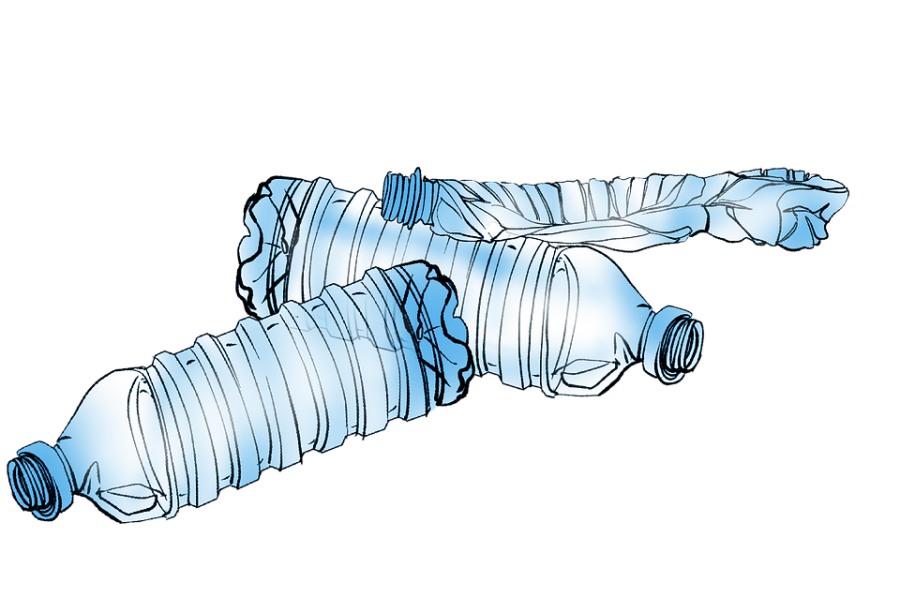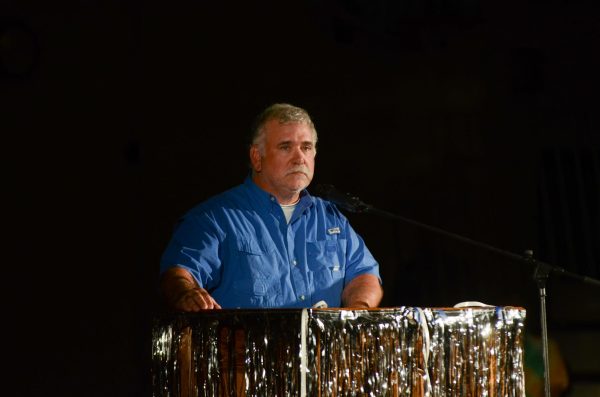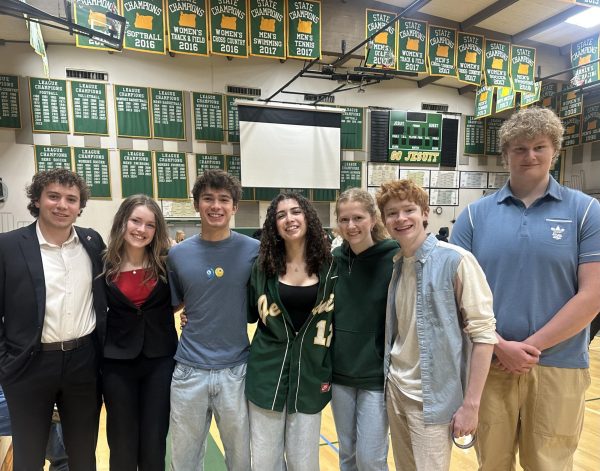Is single-use plastic ruining the planet?
Is single-use plastic destroying our planet?
Written by Virginia Larner
One million plastic bottles are purchased every minute, and by 2050 it is estimated that the amount of plastic waste in our oceans will outweigh the amount of fish. Plastic’s negative impact on our environment cannot be overlooked, and it has been left to our generation to enact change.
While some may feel that the issue is out of reach, there are personal choices we can all make to better the state of our Earth. In Laudato Si’, Pope Francis emphasizes how the collective effort of many individuals can have a large impact.
“We have to think outside the box about one thing we can change in our lives, and if everyone does one thing it actually adds up to be a lot,” associate director of ecological justice and global networking Jennifer Kuenz, said.
Currently, society is seeing a large push towards reducing single-use plastics.
“I feel like we are taking good steps towards a change,” senior Ella Howe said. “A lot of restaurants and businesses are getting rid of plastic straws, which seems like a small thing, but it does have a great impact on the Earth.”
Recently, Jesuit has evolved to better address issues of single-use plastics. The school partners with TerraCycle, an organization which deals with hard-to-recycle waste in effort to effectively recycle plastic waste. This year, the cafeteria has eliminated the access to plastic straws, the science and English departments use refillable expo-markers, recycling spaces are easily accessible around campus, the faculty lounge has reusable utensils and plates, the athletic department has QR codes to be scanned rather than printing out team rosters, and Mrs. Deklotz hands out silicone straws as advertising for prospective students.
“As a school, I think we have done a good job limiting and dealing with plastic waste that we do create,” science teacher Kathryn Mahoney said.
Currently, one of the four universal apostolic preferences for Jesuits is “Caring for our common home.” This goal calls Jesuits to focus on our environment and protect God’s creation.
“We’re a materialistic society, but as a Jesuit school we are called to be counter cultural,” Kuenz said.
While Jesuit is taking initiative with the issue, there is always more that could be done. In the trash audits done by students, one of the largest waste contributors was plastic packaging of food. Another major producer of plastic waste are school events. Purchasing plastic goods for events may offer convenience for the purchaser; however, this convenience comes at the price of our environment’s health.
“Whoever produces [plastic goods] doesn’t have to deal with the trash, the consumer does,” Mahoney said. “The cost of the waste is not on the producer…what if we changed that?”
Much of what needs to be changed falls at the hands of political will, and environmental issues remain a large topic of discussion in the current election. While the majority of high school students can’t vote, we do have power over how we spend our money and what kinds of goods we purchase.
A goal of Kuenz for this year is creating a general policy to be in effect over what the school will bring on campus. This policy would dictate what we as a school are committed to buying or not buying. It could include everything from recyclable products to fair trade products.
Though we continue to take steps towards eliminating plastic waste, environmental issues remain a large stressor in teenagers lives.
“I’m pretty scared,” Howe said. “We are preparing for a future that doesn’t exist.”
It is no secret that plastic usage has increased over time without effective recycling. The Pacific Garbage Patch taking up over 1.6 million kilometers in our ocean.
“You go to the beach and there are little bits of plastic in the sand…when I was a kid that wasn’t there,” Mahoney said.
Some “small” personal choices everyone can make to eliminate plastic waste include: using a refillable water bottle instead of buying a plastic one, packing lunch items in reusable containers, switching out bottled soaps for bars, investing in reusable straws, having a reusable produce bag, purchasing items in bulk, and ensuring that any plastic waste is properly recycled.
“Your generation needs to be not only aware, but active,” Mahoney said. “Awareness is one thing, but it doesn’t do anything unless you act on it.”


Virginia Larner is a senior at Jesuit. She has been on the journalism staff for the last three years, and the editorial board for the last two. Each year she looks forward to the class and having new opportunities to explore journalism further as well as working collaboratively with other journalists in crafting the newspaper. Last year, as the Online and Social Media Content Editor, she assisted in the operation of the Jesuit news Instagram account and website. In her free time she enjoys spending time with friends and family, working out, and playing with her two dogs. She has been a member of the women’s tennis team all four of her years at Jesuit, and participates with Jesuit’s Green Team. Virginia enjoys writing about current events including sometimes controversial topics and how they impact the Jesuit community. She loves the creative aspects of journalism such as creating and editing pages, as well as coming up with interesting story ideas. Through the journalism class, Virginia has interacted with many intriguing people on campus, and explored various stories and aspects of Jesuit. One of her favorite parts of journalism is conducting interviews and gaining insight into various perspectives on her stories.








